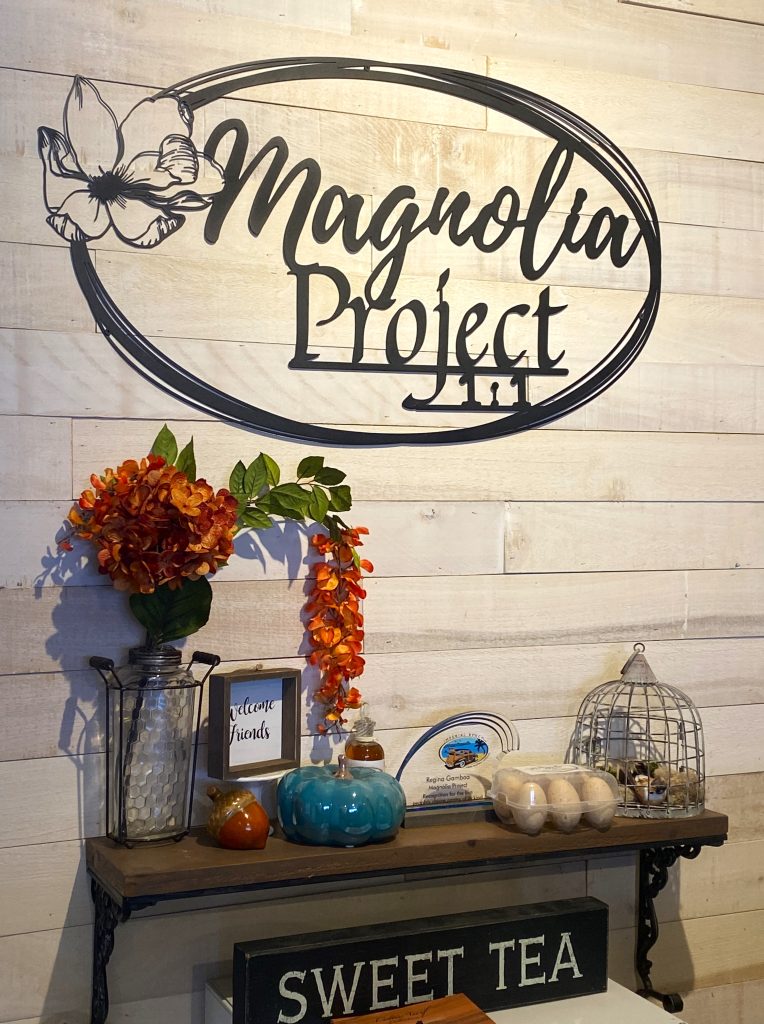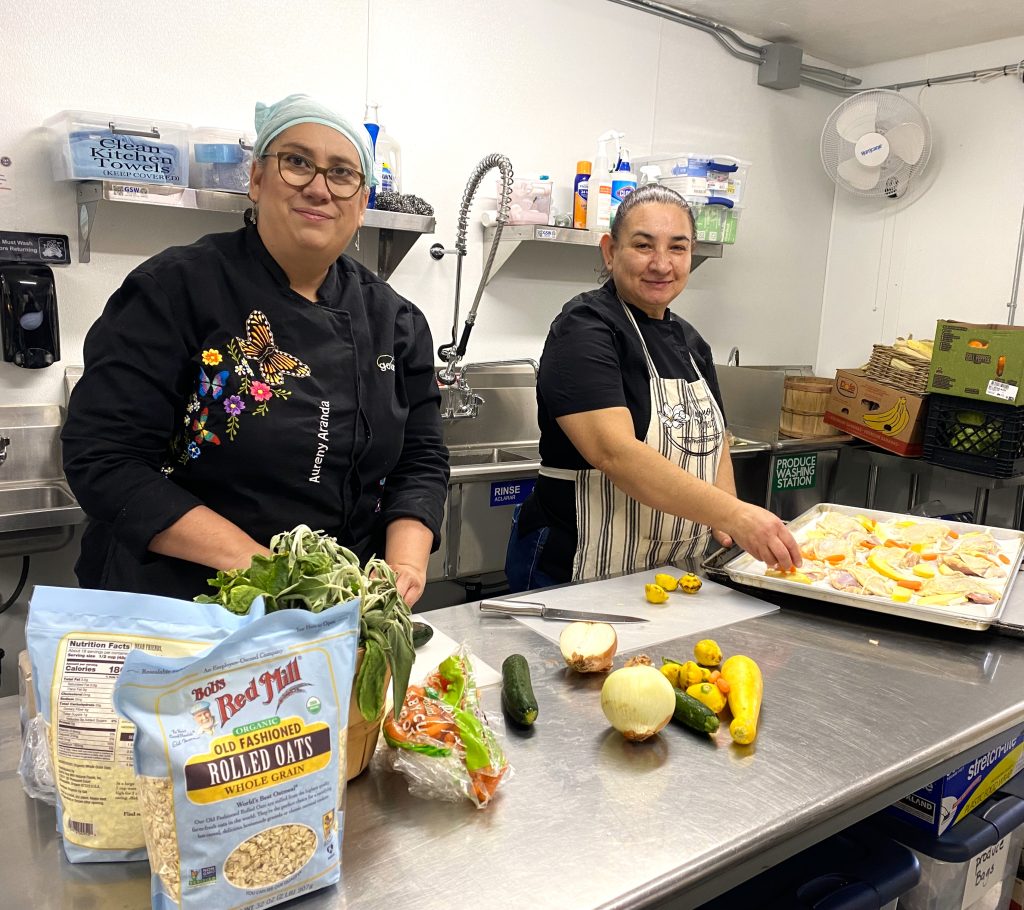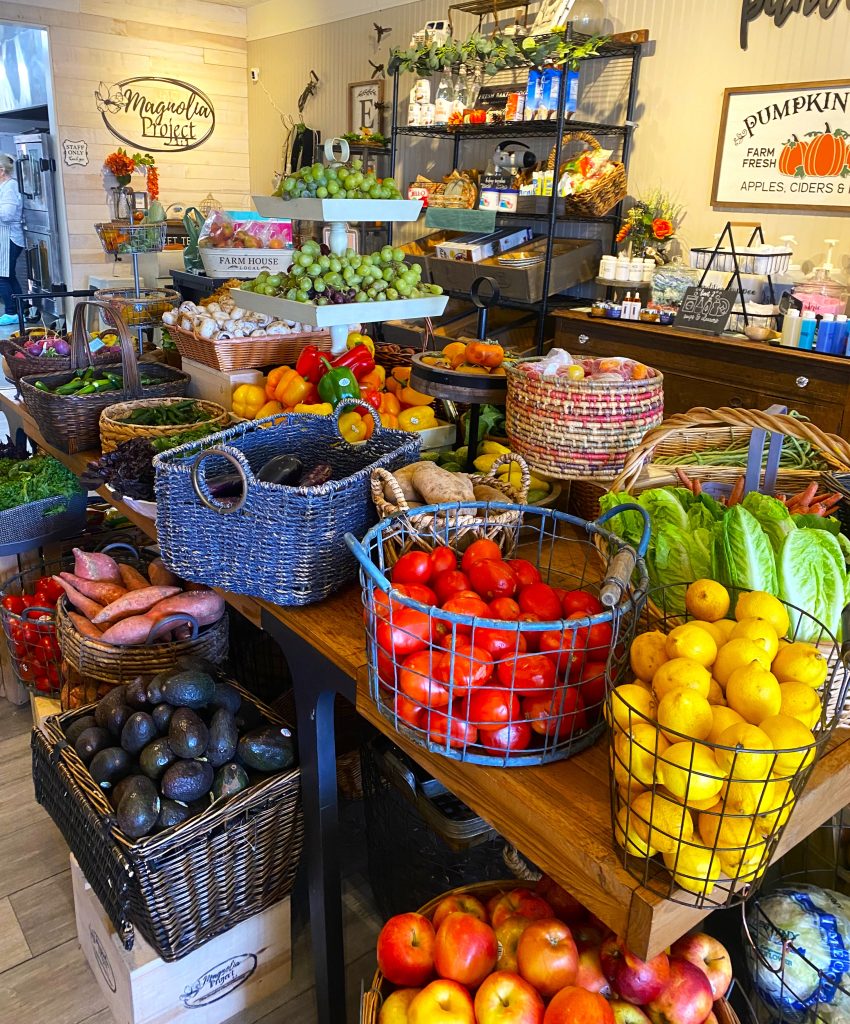 When a Coronado resident learned about the Magnolia Project, a unique food pantry in Imperial Beach, it struck a chord, and they knew they wanted to help. The Magnolia Project team was thrilled that someone was investing in their mission by helping pay rent and other needed expenses. This anonymous donor didn’t just write a check, they put their skills to work helping Magnolia in a variety of key areas, to help ensure that they can continue to provide necessities and a positive shopping experience for those suffering from food insecurity. Then this donor took it a step further when they offered to match any funds up to $50,000 that others donate to Magnolia Project.
When a Coronado resident learned about the Magnolia Project, a unique food pantry in Imperial Beach, it struck a chord, and they knew they wanted to help. The Magnolia Project team was thrilled that someone was investing in their mission by helping pay rent and other needed expenses. This anonymous donor didn’t just write a check, they put their skills to work helping Magnolia in a variety of key areas, to help ensure that they can continue to provide necessities and a positive shopping experience for those suffering from food insecurity. Then this donor took it a step further when they offered to match any funds up to $50,000 that others donate to Magnolia Project.
Meeting the needs of military families ~
“I can actually shop for what I need for my family,” shares military spouse Heidi Centers, who has been shopping at Magnolia monthly for about a year. In order to make the most out of her shopping experience, she says that she takes inventory of what she has at home, so she has an idea of what she needs to create complete meals. She enjoys being greeted warmly at the door and given a basket to fill just like at a normal grocery store. Her favorite area is the array of quality fresh fruits and produce. Exploring the international section, she has found interesting sauces to put on noodle dishes or add to eggs. She also gets food and other things from military distribution events, but likes being able to choose at Magnolia Project.

Heart of the Kitchen
For Chef Aureny Aranda, the kitchen is her playground where she loves teaching people healthy cooking. Coming from Mexico City more than 30 years ago, she says her best experiences have come from volunteering and collaborating with other chefs to learn real life lessons. For her, there are never enough hours in the day for cooking.
“She is the heart and soul of the Magnolia kitchen,” emphasizes Magnolia Project Co-founder Regina Gamboa. Chef Aureny works with Sous Chef Lulu Briseno and together they offer cooking classes with different themes, from heart healthy, canning, to making tortillas. The current six-week class focuses on cooking basics from scratch for improved health. They strive to demystify the process of healthy cooking and emphasize that limiting processed foods can positively impact common diseases like diabetes, high blood pressure, and high cholesterol.
Classes are limited to 10 participants because the experience is interactive. Often, the class makes a whole meal and shares it afterwards. Participants are asked to commit to the whole course, so they can see a change in their body and how they feel. “It’s about changing their mind set and giving them the tools to cook nutritious food,” shares Chef Aureny.
The week I visited, the planned menu was to make almond and oat milk, garbanzo beans and bone broth, all from scratch, to avoid preservatives that can cause inflammation and trigger pain. The recipes weren’t set for the following week’s menu, because they will be decided depending on what food is rescued that week. Donated food comes from a variety of sources, and Regina estimates that Magnolia Project’s rescued food efforts have kept 300,000 pounds of food from landfills.
When cooking, Chef Aureny starts with a base, like quinoa, raw nuts, or whole grains, and builds off that to show how to create nutritious options. For example, she has made tacos using mushrooms, her favorite food, for a filling that tastes just like meat. She always advocates for not throwing away food and says that even if your veggies don’t look perfect, you can roast them and still use them in a variety of ways.
Previously, Aetna sponsored the cooking classes, but they recently pulled their funding because they wanted a more craft-focused emphasis. Magnolia is looking for additional sponsors, so they can keep these valuable classes going, which cost approximately $350 to put on each week
The two chefs put their heads together and produced a kitchen wish list for Magnolia, which includes everything from spoons to food processors costing between $10 and $500.

Volunteers are key
“We never know what we will find as we help unload the truck, but our goal is make the donated food look amazing for shoppers,“ says Hada Rolon, who has been volunteering at Magnolia Project, several mornings a week, since February 2023. She notes that shoppers gravitate to the fresh produce display in the center of the store, as well as to the canned goods selection.
She says that Magnolia is such a blessing for the community and it’s gratifying to be there. The support comes full circle as they help members and then Regina encourages them to take a bag of groceries for their own families.
Hada was drawn to help at Magnolia because she had always volunteered in her kids’ schools, but now they are teenagers. She has found Magnolia to be a great organization where you can make a difference. “I often encounter families who touch my heart,” she comments.
Magnolia caters to shoppers. For example, if a homeless person comes in, Hada says that they will offer them sandwiches and other options, rather than canned goods, because often they don’t have a can opener or way to heat things.
Volunteer Joseph David is a childhood friend of Regina’s. Their moms were friends and they shared adventures growing up. He began volunteering with Regina more than 15 years ago, when she was feeding the homeless behind Home Depot, and has been with Magnolia since it opened. He is semi-retired and volunteers three times a week. “I know many of the customers by name and enjoy helping them,” he shares.
Striving to make people feel special, he sometimes sets aside rescued bakery items for people he knows would relish them. He also makes sure that families with kids have milk, eggs, juice, and other essentials. “I enjoy the awesome atmosphere created by Regina and the other volunteers, as well as the clientele,” he shares.
David explains that they always have fresh eggs from the community, but if there isn’t enough produce or other needed items, Regina organizes purchasing them. Besides the international section, the alternative area offers sugar free, gluten free, keto, and other healthy options, when available. These areas cost approximately $100 a month to supplement.
Magnolia Project is a non-profit pantry which provides vital free services to those in need in the South Bay. Focusing on healthy options and pantry aesthetics, people can get needed items and feel good about shopping. With startling statistics like one in four people in San Diego County is experiencing food insecurity, Magnolia fills a need for 1800 households, with 138 of those active duty military personnel. On average, Magnolia provides 44-50 pounds of food for shoppers per visit, surpassing other pantries in the county. Seniors comprise 69 percent of their clientele and about 250 are disabled community members. Those numbers continue to grow by at least 12 families weekly.
Now is an opportune time to get involved with Magnolia Project, whether it be through a monetary donation, which will be matched (up to $50,000) by a Coronado resident; providing produce, food and other requested items; or volunteering time to help organize the pantry and assist guests. Magnolia Pantry is located at 633 9th Street in Imperial Beach, and is open Monday, Wednesday, Friday, and Saturday, from noon to 4 pm, by appointment. For further details, visit www.projectoneone.org or call 619-777-6723.




